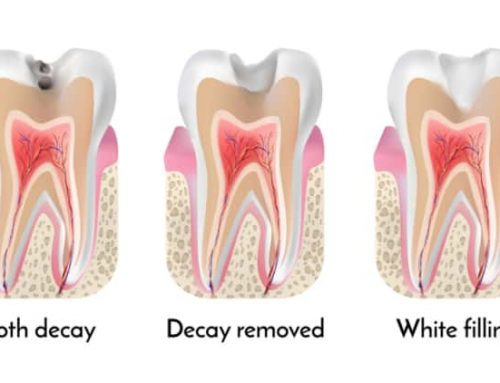
Pregnancy can be as turbulent a time as it is exciting. If you’ve recently learned you’re a mom-to-be, you’re probably reading up on what to expect over the course of the next nine months. Your body will be changing in ways you probably didn’t expect. Your vision may blur, your sensitivity to smells (good and bad) may increase. So you may be wondering: In what ways does pregnancy affect your dental health?
Read on for some of the changes you may see in your smile as you await the arrival of your little one. Then, consider Pickett Family Dental for your dental needs in the next nine months and beyond.
Just as your doctor will likely recommend scheduling frequent prenatal visits in the lead-up to your due date, you might require more frequent dental checkups to help prevent gum disease. Pickett Family Dental can partner with you to maintain a healthy smile in a comfortable setting. Call our Keller, TX office today at 817-431-5514 to schedule an appointment.
Pregnancy Gingivitis
Hormonal changes like those during menstruation, menopause, and — yes — pregnancy often cause women to be more susceptible to a mild form of gum disease called gingivitis. Though researchers aren’t exactly sure why this happens, it’s commonly thought that increased levels of progesterone make it easier for plaque-causing bacteria to thrive. This progesterone may also make your gum tissue more easily irritated by the bacteria, resulting in inflammation and redness.
No matter what mechanics drive pregnancy gingivitis, it’s estimated that 40 percent of women will experience it sometime during their pregnancy. Signs of it usually appear between the second and eighth months of pregnancy.
So, how can you prevent pregnancy gingivitis?
If you’re flossing once a day, you’re already on the right track. Flossing helps remove food debris that might otherwise linger between your teeth or along the gum line and attract bacteria.
You can also work with the professionals at Your All American Smile Center to keep an eye out for the early signs of gum disease. Those include:
- Red or swollen gums
- Tenderness
- Bleeding while brushing or flossing
- Unpleasant breath
Left untreated, gingivitis can progress into periodontitis, a more aggressive form of gum disease that’s often accompanied by gum recession. Though the damage can be repaired, catching and treating gum disease early can help save you the hassle of more involved curative treatments.
If we do detect infection of your gum tissue, we’re able to comfortably treat gum disease with non-surgical treatments. We’ll help you keep your gums healthy so you can focus on other things!
Increased Risk Of Cavities
Morning sickness is one the most hated things about pregnancy. The good news? Morning sickness often lets up after the first trimester. The bad news? All that stomach acid that your teeth are exposed to during episodes of nausea can cause your enamel to weaken.
And when the hard, protective outer layer of your teeth erodes, you’re more likely to get cavities.
Protecting your smile might be the last thing on your mind if you’re experiencing morning sickness, but there are steps you can take to make sure your teeth stay healthy and beautiful.
Rinse out your mouth with a mixture of 1 cup water and 1 teaspoon baking soda and spit it out to remove those acids from your teeth. Wait about half and hour, and then brush as usual. If you’re not already, start using a fluoride toothpaste to keep that enamel nice and strong.
Brushing Might Make You Gag
Because you may experience an increased sensitivity to smells and tastes, it’s possible that your normal toothbrush or flavor of toothpaste may make brushing unbearable.
Still, it’s important to maintain proper brushing and flossing habits since you’re at an increased risk of tooth decay and gum disease. Plus, some studies suggest that poor oral health habits during pregnancy have been linked to birth complications, such as premature birth or pre-clampsia.
So what’s a pregnant woman to do?
Try switching up your toothpaste or using a toothbrush with a smaller brush head. Sometimes, simply adjusting the time of day that you brush your teeth can make all the difference in the world.
Dental Disease Effects on the Baby During Pregnancy
There has been a lot of research done on to assess the affects of dental diseases such as gingivitis and tooth/gum decay in pregnant women and Research has found a link between gum disease in pregnant women with links found to premature birth and low birth weight. Both of these are can be life threatening for the child, but they’re not the only causes for concern.
Dental disease can cause premature birth, low birth weight, and health conditions such as cerebral palsy along with other problems with eyesight and hearing.
Researchers estimate that up to 18% of premature births are caused by periodontal disease, the chronic infection of the gums that could easily be prevented by regular dental visits and proper dental hygiene.
Excellent Dental Care For You — And Eventually Your Little One!
Your oral health reflects and influences your overall health, as well as your baby’s! Keeping up with your routine checkups and professional cleanings allows you to rest assured that everything’s on track.
Time will fly and before you know it, you’ll be taking advantage of our high-quality family dentistry services for your little one’s first visit!
Call Pickett Family Dental today at 817-431-5514 to schedule your dental exam. You can also use our convenient online form to request an appointment.



